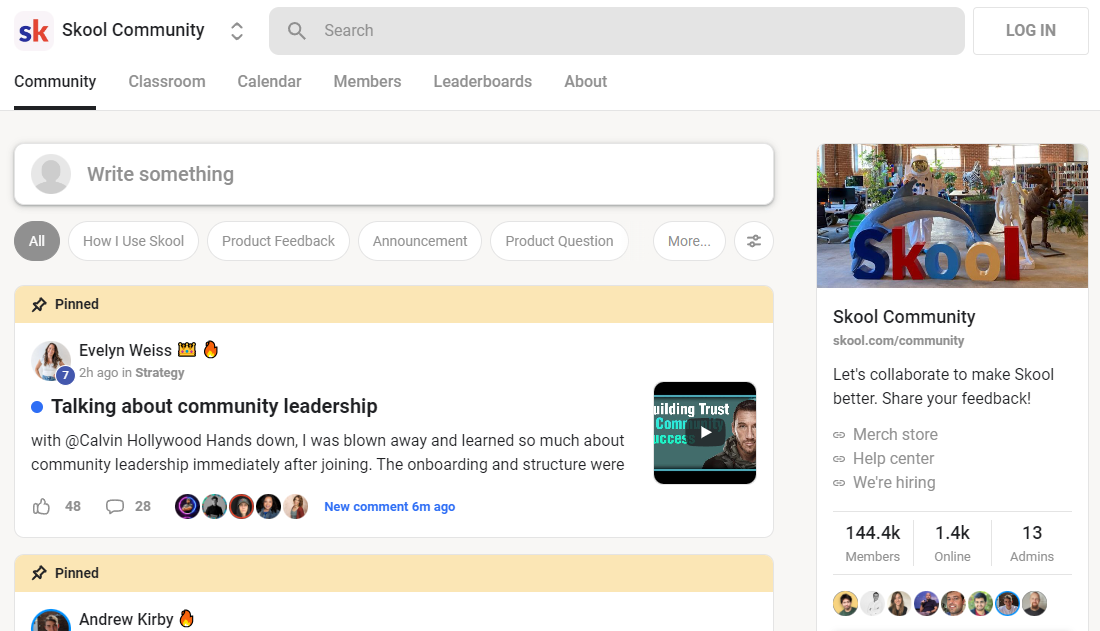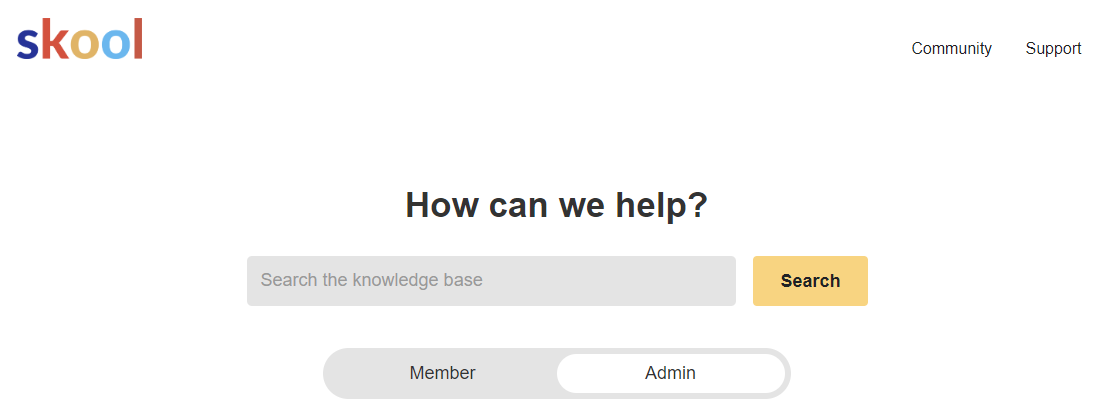Skool offers best-in-class gamification features that increase involvement. For example, participants can make degrees based upon their involvement, which open program material and various other benefits that even more inspire them.
Formerly, creators needed to make use of different tools for organizing programs, constructing neighborhoods and handling e-mail advertising. This developed a disjointed experience for both designers and their audiences.
Producing Courses
Skool has a straightforward, user-friendly interface and prioritizes community building and program organizing over various other attributes. It enables creators to produce a vivid area for their courses and training programs by connecting them with the ideal audience. This likewise helps them monitor the health and wellness of their material business with the help of a straightforward dashboard.

To start, an individual can register for a complimentary 14-day test of Skool. Afterwards, they can pay $99 a month for the platform to hold a solitary community. There are nothing else pricing options readily available for the moment. Skool additionally processes payment and pays developers weekly, but it does bill a 2.9% purchase charge.
Among the distinct elements of Skool is that it can be utilized to produce interactive courses. These can consist of online webinars, group tasks and real-time conversations. These sorts of training courses encourage participation and rise course completion prices. In addition, Skool’s gamification functions help to urge community participation. As an example, members can earn points and unlock course material when they reach particular levels in the neighborhood.
Users can likewise utilize the social feed on Skool to publish updates and connect with others in the area. The feed looks like a Facebook team, yet with an extra regulated way of posting. This helps to stay clear of the type of spam and misuse that happens on other social platforms.
Handling Communities
Skool is an extremely basic system to use, for both members and admins. Its simpleness is one of its primary selling points– when somebody joins your area they will not be confronted with a bunch of choices or attributes that can hinder their experience and puzzle them.
The system starts off as a private group by default, however you can conveniently change this to open up your community to anybody that you wish to be part of it. As soon as you’ve done this you’ll see a social feed like you would on Facebook Groups or WhatsApp (however without all the scam stuff and swearing).
You can also include a class tab to your community that you can utilize to share instructional content with your members. This feature is particularly beneficial for areas that are concentrated on learning or professional development as it helps to produce an instructional structure and makes it easy for members to track their progression. Additionally, the platform has gamification components that enable participants to gain points by suching as posts or remarks. When they reach a particular level they can unlock sources, such as programs, better driving engagement.
The other great point is that Skool has a mobile application, similar to Mighty Networks or Slack, so participants can keep up with your neighborhood and connect on the move. This is an excellent method to urge and engage your members and to help them obtain assistance from each other when they need it, rather than simply turning to you for answers.
Skool Hacks
Skool concentrates on gamification, permitting customers to make factors and badges for their payments. This encourages members to involve with the area and add to discussions. Subsequently, this helps them level up and unlock advantages like video clips and other web content. Admins can additionally establish courses to be opened at details levels to additional drive interaction.

The Skool interface is spick-and-span and intuitive. Its main features include the Community tab, which looks just like a Facebook team feed. Right here, individuals can post remarks and text as well as upload photos, web links and video clips. Participants can additionally view each others profiles and get in touch with them. Furthermore, customers can create personal groups in the area to discuss specific topics.
Another feature of Skool is the Classroom tab, which is similar to a YouTube livestream or Zoom meeting. Using this, administrators can hold trainings and webinars for their pupils. They can also add occasions in the schedule to stay updated on upcoming occasions and Skool Hacks.
Nevertheless, some aspects of Skool can utilize enhancement. For instance, the system isn’t versatile when it concerns monetization as individuals can not offer numerous rates tiers for their training courses and community subscriptions. Moreover, the device does not have an email advertising and marketing feature, which may be an offer breaker for some program makers. It additionally does not have native video clip organizing, implying that customers need to use external systems like YouTube, Loom and Vimeo for their videos.
Adding Content
The process for including material and interacting with members on Skool is easy and uncomplicated. Admins can develop posts with message, GIFs, videos and surveys. They can likewise include event calendars to notify community members of upcoming group Zoom calls or live streams. In addition, they can use Skool’s e-mail broadcast attribute to send out a message to the whole community with a solitary click. This gets rid of the requirement for tagging and list division, which can be troublesome.
Moreover, Skool’s gamification features can improve engagement and customer retention. It encourages members to engage with the content often by awarding them with different perks. These include opening training course web content, earning points and making a spot on area leaderboards.
While Skool provides a host of helpful attributes for developing and providing online training courses, it’s not for every person. The system is best for trainers, professionals and various other information entrepreneurs. However, the price can be a barrier for some individuals wanting to monetize their on the internet material.
In addition, the lack of fundamental tiers and a short free trial might be a deterrent for lots of. In addition, the system’s laser-focus on eLearning can make it less preferable for people that want to sell various other digital products. Nonetheless, regardless of these downsides, Skool Hacks is still a sensible choice for anybody seeking to create and monetize online programs.